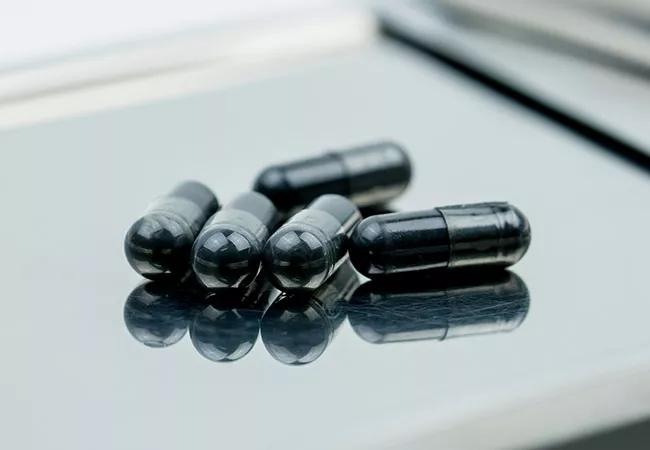The Short Answer from an emergency medicine physician

Image content: This image is available to view online.
View image online (https://assets.clevelandclinic.org/transform/dc218961-0b4a-4c1a-8d0a-160d16a10710/activated-charcoal-pills_jpg)
Activated Charcoal
A: In the emergency department, we use activated charcoal to treat certain types of drug overdose and poisoning. Once swallowed, charcoal binds to the drug or toxin in the stomach so the body can’t absorb it.
Advertisement
Cleveland Clinic is a non-profit academic medical center. Advertising on our site helps support our mission. We do not endorse non-Cleveland Clinic products or services. Policy
This ability to bind to unwanted substances may be the reason that some recommend activated charcoal’s “off-label” use for relieving gas/bloating, for lowering cholesterol and for preventing hangovers.
While activated charcoal’s effectiveness in the emergency department is proven, there are conflicting results related to its ability to relieve gas/bloating. And no studies support its use for lowering cholesterol or preventing hangovers.
It’s worth noting that taking charcoal pills is not without risk:
I would advise you to check with your doctor before using activated charcoal pills to relieve your discomfort. Other remedies may be safer and better tolerated over time.
—Emergency medicine physician Seth Podolsky, MD, MS
Advertisement

Delivered every Tuesday!
Sign up for our Health Essentials emails for expert guidance on nutrition, fitness, sleep, skin care and more
It's a letter about the news!
Learn more about our editorial process.
Advertisement
Flying can cause dehydration and bloating and make you feel tired and stressed
It’s perfectly normal for gas pockets to ‘evacuate’ during the motions of sex
When it can’t pass down south, gas can definitely travel — and get trapped — up north
Gripe water isn’t regulated by the FDA, and research doesn’t support its use
Fiber gets credit, but don’t let the byproduct keep you from enjoying beans
Excessive flatulence could indicate a digestive issue
Try these tips and tricks to help your baby get rid of gas fast
Certain foods, medications or even illness could be behind the stink
Type 2 diabetes isn’t inevitable with these dietary changes
Applying a hot or cold compress can help with pain
Pump up your iron intake with foods like tuna, tofu and turkey